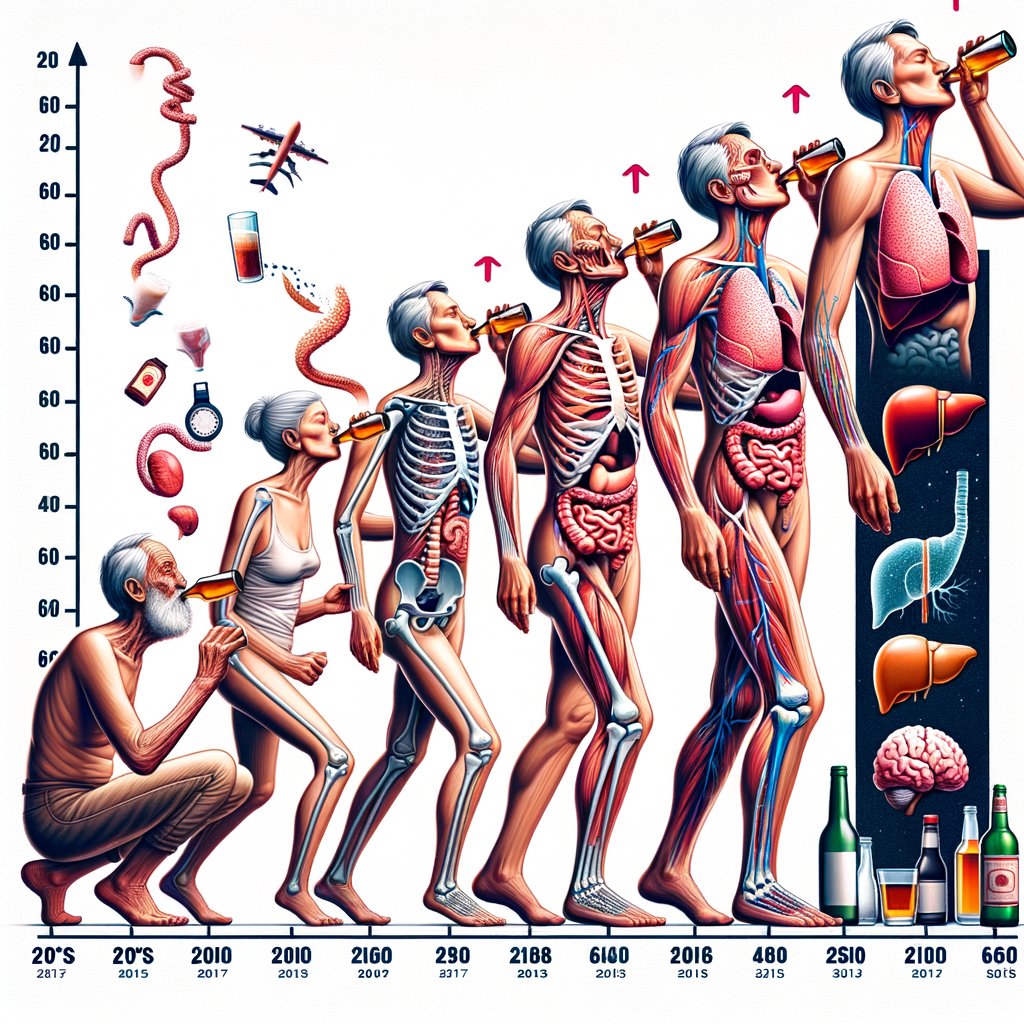Image created by AI
Navigating Alcohol Consumption in Older Age: Insights from a Geriatrician
As the years stack up, so does the impact of drinking alcohol on the body, a reality that becomes increasingly clear and somewhat harsh as one transitions from the energy of youth to the wisdom of older age. Dr. Elizabeth Landsverk, a geriatrician specializing in dementia, shares critical insights into why alcohol seems to hit harder as people age.
Drinking alcohol can have various health implications throughout different stages of life, but the stakes are notably higher as we get older. According to the 2020-2025 Dietary Guidelines for Americans, moderate drinking is defined as up to two drinks per day for men and one drink per day for women. While this might seem a safe threshold, Dr. Landsverk suggests that the effects on the body vary significantly depending on one's age.
From the resilience of the 20s, when the liver and brain can handle the aftermath of drinking a bit better, to the progressive dive in tolerance and health ramifications in later decades, Dr. Landsverk elucidates the shift. In the 30s and 40s, the focus should not only be on alcohol consumption but also on overall health, particularly since conditions like obesity and diabetes can worsen alcohol's impact.
By the time one reaches their 50s and 60s, even moderate drinking—previously deemed relatively harmless—can lead to serious health issues including increased risks of various types of cancer, heart attacks, and even dementia. Dr. Landsverk points out that alcohol can exacerbate these risks significantly due to its effects on organs such as the liver and the brain, as well as its potential to disrupt sleep patterns.
Citing personal experience, Dr. Landsverk mentions that in her 60s a single glass of wine can affect her much more profoundly than it would have previously, a sentiment likely echoed by many in that age group. This increased sensitivity is attributed to a decrease in the body's production of alcohol dehydrogenase, the enzyme responsible for metabolizing alcohol.
Dr. Landsverk's analogy of treating alcoholic beverages like candy bars—enjoyable in moderation but potentially harmful in excess—highlights the need for a balanced approach to drinking as one ages. She emphasizes that while it's not necessary to give up alcohol entirely as one grows older, it is crucial to consider its long-term effects and adjust consumption patterns accordingly.
In conclusion, as aging gracefully becomes a priority, understanding and adjusting alcohol consumption is important. Balancing enjoyment with health, especially in later years, can lead to better quality of life and well-being. So, next time you reach for that glass of wine, think about how it fits into your healthy aging plan, and remember, moderation is key.










